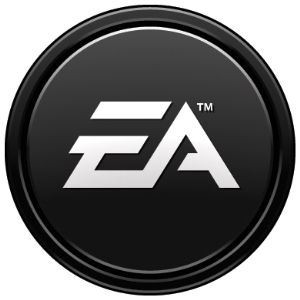History
Trip Hawkins secured US$2 million of venture capital from Sequoia Capital, Kleiner Perkins Caufield & Byers, and Sevin Rosen Funds. Between September and November, employee headcount rose to 11, including Tim Mott, Bing Gordon, David Maynard, and Steve Hayes. Having outgrown the office space provided by Sequoia Capital, the EA Games relocated to a San Mateo office that overlooked the San Francisco Airport landing path. Headcount rose rapidly in 1983, including Don Daglow, Richard Hilleman, Stewart Bonn, David Gardner, and Nancy Fong.

February, 1982. Trip Hawkins arranged a business meeting with Don Valentine (Sequoia Capital) to discuss financing his new business enterprise, Amazin’ Software. December 1982, Seven months later. Hawkins secured US$2 million of venture capital from Sequoia Capital, Kleiner Perkins Caufield & Byers, and Sevin Rosen Funds. Between September and November, employee headcount rose to 11, including Tim Mott, Bing Gordon, David Maynard, and Steve Hayes. Having outgrown the office space provided by Sequoia Capital, the company relocated to a San Mateo office that overlooked the San Francisco Airport landing path. Headcount rose rapidly in 1983, including Don Daglow, Richard Hilleman, Stewart Bonn, David Gardner, and Nancy Fong.
In 1983 Hawkins left the company and went on to found the now defunct 3DO corporation.
Early sales strategy
Hawkins was determined to sell directly to buyers. Combined with the fact that Hawkins was pioneering new game brands, this made sales growth more challenging. Retailers wanted to buy known brands from existing distribution partners. Despite this, revenue was $5 million in the first year and $11 million the next Former CEO Larry Probst arrived as Vice President of Sales in November 1984 and helped the company sustain growth into $18 million in its third full year. Teaming with the existing sales staff that included Nancy Smith, David Klein, and David Gardner, Probst built the largest sales force of any American game publisher. This policy of dealing directly with retailers gave EA higher margins and better market awareness, key advantages the company would leverage to leapfrog its early competitors.
In December 1986 David Gardner and Mark Lewis moved to the UK to open a European headquarters. Up until that point publishing of Electronic Arts Games and the conversion of many of their games to compact cassette versions in Europe was handled by Ariolasoft. A small company in Wales was already called Electronic Arts, and until 1997 Electronic Arts in the UK was known legally as EOA, a name derived from its square/circle/triangle logo. The Welsh company ceased trading in 1997 and Electronic Arts acquired the rights to the name.
Developer Treatment
An innovative approach to giving credit to its developers was one of EA's distinctive characteristics in its early days. This characterization was even further reinforced with EA's packaging of most of their games in the "album co pioneered by EA because Hawkins thought that a record album style would both save costs and convey an artistic feeling EA routinely referred to their developers as "artists" and gave them photo credits in their games and numerous full-page magazine ads. EA also shared lavish profits with their developers, which added to their industry appeal. Because of this novel treatment, EA was able to easily attract the best developers and the developers were usually very happy working for EA.
1991-2010
EA Games is currently headquartered in the Redwood Shores neighborhood of Redwood City, California. Following the departure of Trip Hawkins, Larry Probst took over the reins and led the company to its current size and stature. Probst considered himself a man of principle and has refused to follow the M-rated example set by Take-Two Interactive, whose violent Grand Theft Auto franchise became the dominant brand in many key demographics from 2000 through 2003. As a result, Probst was heavily criticized by Wall Street analysts, who believe that because of this policy, EA's stock price is lower than it should be.] In late March 2005, Electronic Arts issued its first ever mid-quarter profit warning blaming hardware shortages and lower than expected fourth quarter sales.
In 1999 EA approved its first M-rated game, System Shock II for the PC. Probst later changed his overall stance on M-rated games, and now EA has several titles that compete in the M-rated, adult game arena.
In 2004, EA made a multimillion dollar donation to fund the development of game production curriculum at the University of Southern California's Interactive Media Division. In addition to the funds, EA staff members have been actively teaching and lecturing at the school.
In 2009, they purchased Facebook social games developer Playfish, whose games include Pet Society and Restaurant City.
Studios under the EA Games label
Log in to comment